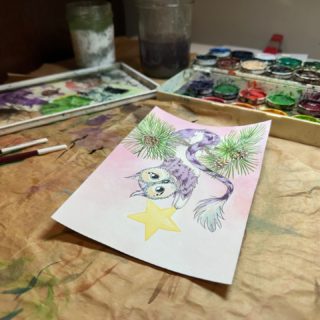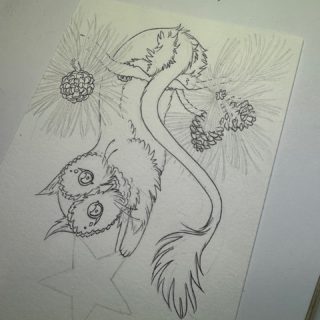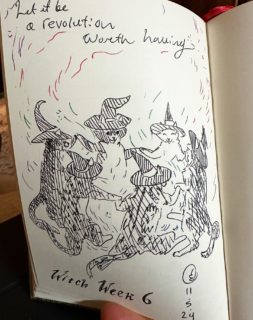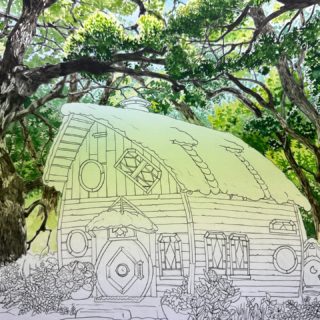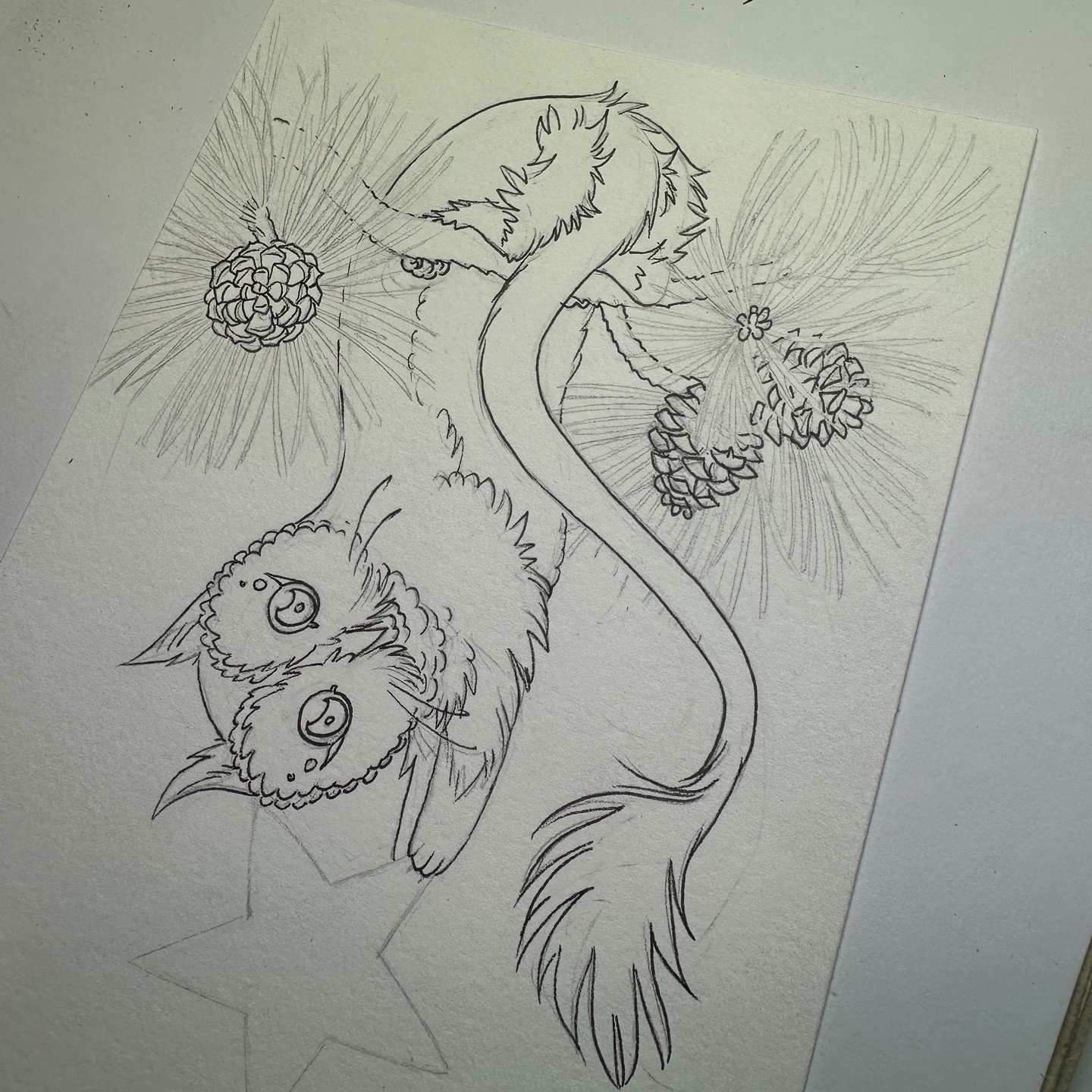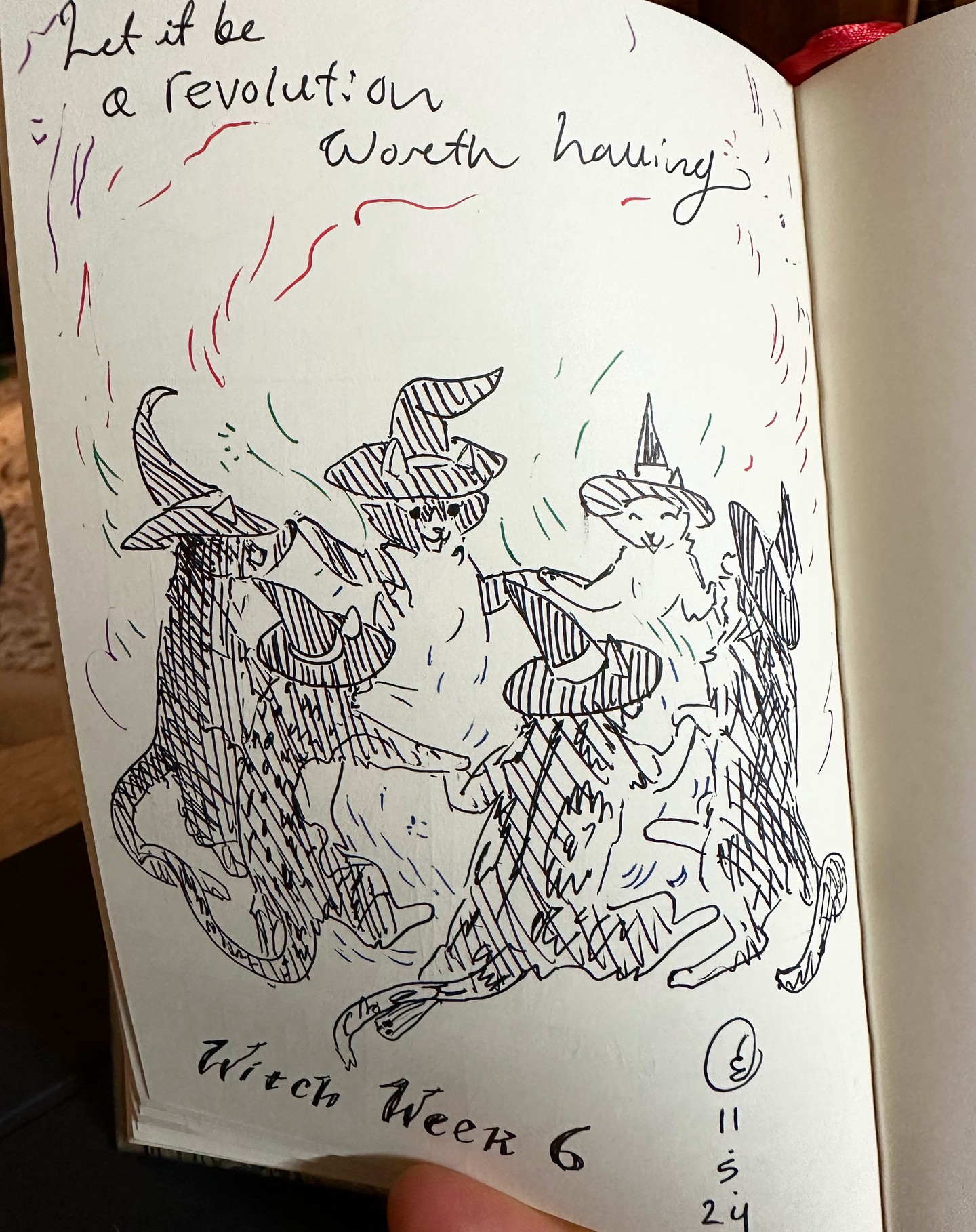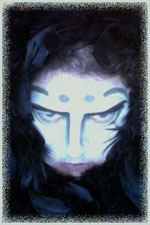 As I have already mentioned elsewhere (not so far on this blog), my beloved cat, Nyx, was run over by a truck last month. I decided not to write of it here, not right away, because I want to keep this blog an interesting and pleasant read, and I always find outpourings of grief to be something of a downer—though I can sympathize entirely. In fact, it is because I can sympathize that it makes me feel sad. I did not want to make you feel sad, so I kept my grieving to immediate family members and friends. Now it has been almost four weeks, and I think it’s time for me to write about—not the tragedy itself, but the strange surges of emotions that went through me in the immediate aftermath.
As I have already mentioned elsewhere (not so far on this blog), my beloved cat, Nyx, was run over by a truck last month. I decided not to write of it here, not right away, because I want to keep this blog an interesting and pleasant read, and I always find outpourings of grief to be something of a downer—though I can sympathize entirely. In fact, it is because I can sympathize that it makes me feel sad. I did not want to make you feel sad, so I kept my grieving to immediate family members and friends. Now it has been almost four weeks, and I think it’s time for me to write about—not the tragedy itself, but the strange surges of emotions that went through me in the immediate aftermath.
I am young enough, and have been lucky enough, that I have never lost an actual family member—except my grandmother, but I was too young then to fully comprehend what it meant. Since then we have lost pets. To date, these deaths have all been due to old age, degenerative diseases that finally swallowed up a spent life. This was sad. (It was very sad.) But it was the kind of sad that you see coming. You are bracing yourself for the blow, so when it comes it is almost a little of a relief.
This wasn’t like that. It was a beautiful day at the beginning of spring: all sunny and green with singing birds. The cats were running in and out of the house, and the only thing I was worrying about was getting all my painting done in time to fit in a bike ride before the end of the day.
Then a truck ran over my cat.
It was very quick—I think her skull was crushed—but I still had my phone out ready to call the vet in case there was something we could do. Up until that moment there was always something I could do. I have the mentality of someone who keeps looking for a way out even as the trash compactor walls are closing in. There is always something you can do.
Well, mostly always. This time, there wasn’t. In the blink of an eye my cat had gone from a lively, capricious, bouncing ball of fluffy black fur into a limp bleeding corpse.
At that point, the only thing my brother and I could do was bury it.
It took a long time for me to realize that there really was nothing I could have done. Except keep the cats locked up inside. (Which we do now: except for Scruffy, who is too miserable inside all the time, and has the best street sense besides.) But in hindsight really there was nothing. I got there as fast as I could—I actually saw the truck hit her, and when I reached her her body was still twitching.
But as advanced as our medicine is, there isn’t much it can do for a broken neck and a crushed skull.
My brother and I sat on the front porch for a long time, the body wrapped in a cloth, trading it back and forth, and crying and crying and crying.
A thought began to occur to me then. Behind the grief and the tears it was rather vague, but it’s been growing on me ever since, and the thought is this:
We don’t want revenge. Not really. We romanticize vengeance and the whole “eye for an eye” mentality, but that’s not what we want really.
We want our cat back. We want our father back. Our mothers and our siblings and our friends.
I think the reason the story of Jesus resonates with so many people is because he did come back. Mythical heroes mostly do.
It has always bothered me how any story that contains a resurrection is automatically assumed to be an allegory for Jesus. Specifically Aslan in The Chronicles of Narnia. Now, I don’t know what C. S. Lewis was thinking when he wrote that. For all I know he could have been making a Jesus Christ reference, but I have never seen it that way, and even if it is true, I know I never will.
Because the desire for resurrection—for the rolling back of time to undo a disaster—is a dream we humans have had since long before Jesus Christ. And we will feel it long after he has been forgotten. It is fundamental to our nature. It is the first response: before grief, before sadness, before anger, we just want our cat back. We just want the truck, or the bullet, or the cancer or the heart failure not to have happened. We want them to get back up, and get better. We want that deeper magic, from before the dawn of time.
Sadly, our universe does not support this level of magic. And science hasn’t advanced far enough to reverse death (except in very special, very rare circumstances).
So we are left with a dead cat cat (or grandmother, or father, or friend, or…) and because humans are reasonable creatures we want to find a reason for this pain we are in. In any way we can we try to assign blame to the thing we feel caused this death. And when we find it, we want to punish it.
I think the desire for revenge comes, not so much from feelings of anger against the killing, but from the devastating despair at not being able to do anything. We couldn’t save our cat (or mother or father or…), and we couldn’t bring them back to life. The preventive and constructive options having failed, only then do we resort to the destructive response.
Mostly we get there very quickly. Because it is so obvious that there is nothing we can do, we jump straight to the one thing we can do: revenge.
It’s not good to go this way, I think. Revenge, even in the ideal sense, generally ends badly for everyone concerned. And if there is no one particular thing or person we can focus our revenge on (if there is no six-fingered man), some people turn that anger inwards on themselves in the form of drug use and alcoholism and debilitating grief.
Which is why I think revenge is not really a good thing. I am reluctant to call anything inherently bad (except for mosquitoes), but I think revenge, and all the baggage it carries, is something that should be avoided.
I remember reading about the Nazi war criminals the Allies were able to catch and bring to trial after World War II. What was so frustrating was that the really nasty ones, like Heinrich Himmler and Joseph Goebbels, got away with committing suicide. This is always a let down. If you’re going to be a villain, have the decency to let the heroes catch you when you’re beaten.
Thing is, I don’t think any of the leading Nazis thought they were villains. Real villains seldom do; it’s part of what makes them so evil. (The ones who realized what awful things they were doing and tried to do something about it, like Erwin Rommel, ceased—in my mind—to be real villains.)
Because of this I think it is even more important for the sake of justice—justice, not revenge—to catch them. Catch them and try, at least, to confront them with what they’ve done. Because no punishment we can devise, no imprisonment or torture or even death, can punish a villain the way they can punish themselves, if they can just be made to see what they did wrong.
So as I read about this general and that SS officer being found guilty and executed, I found I did not feel at all happy about it. It wasn’t satisfying that they were caught and tried and hanged… because what did that accomplish? In the end, all it did, I think, was drag the Allies down a little more to their level.
In the end I think maybe Himmler and Goebbels and Hitler did us a favor by killing themselves. Because if we couldn’t catch them and make them see how evil they had been, at least we didn’t have to stoop to their level and kill them. They had already done so much worse, it is of no pain to me that they took their own lives. Maybe it was the only decent thing they did.
It may be frustrating, and poetically disappointing, but in this real hard world, without the deeper magic, I think it is better.
We are all going to die, anyway. I am an atheist, I do not believe there will be a reckoning, so I am in no hurry to push anyone towards death. If a villain is to be punished they must be alive to be punished. You can only suffer, you can only be redeemed, as long as you are alive.
When I was a little girl I loved The Princess Bride. I loved it even though Buttercup is absolute rubbish and an insult to heroines everywhere—I can’t fathom what Westley saw in her—not that I blame Robin Wright Penn, it wasn’t her fault. But I admired Westley all the same. Characters like Westley were what first interested me in acting, because though I knew I could never actually be like that in real life, I could at least pretend on stage or in front of a camera.
So I feel quite satisfied in letting him speak for me when he says, in response to Inigo’s kind offer to kill Prince Humperdink:
“No, I want him to have a long life, alone with his cowardice.”
As an eleven-year-old I found this something of a let down after the so-satisfying kill of Count Rugen, but looking back on it now I see Westley was quite right, and I was right to admire him.
Sometimes I see a truck drive past my house that looks an awful lot like the one that killed Nyx. But I can’t know. At the time I wasn’t thinking about the truck. I wasn’t thinking about the driver, or of revenge, I just wanted my cat back. So I can’t be sure. And I don’t think I’m going to do anything about it.
Maybe, if I get the chance to talk to the driver, I’ll tell him or her to be careful. There are kids playing and riding bicycles in this neighborhood, as well as cats. But that’s all.
I will imagine he or she has a long life, filled with the normal joys and sorrows. And when he or she dies—as I know he or she will—I shall imagine that death, however it comes, as Nyx’s retribution.
For revenge is a poisonous dish, best left to age and time.
But I still want my cat back.
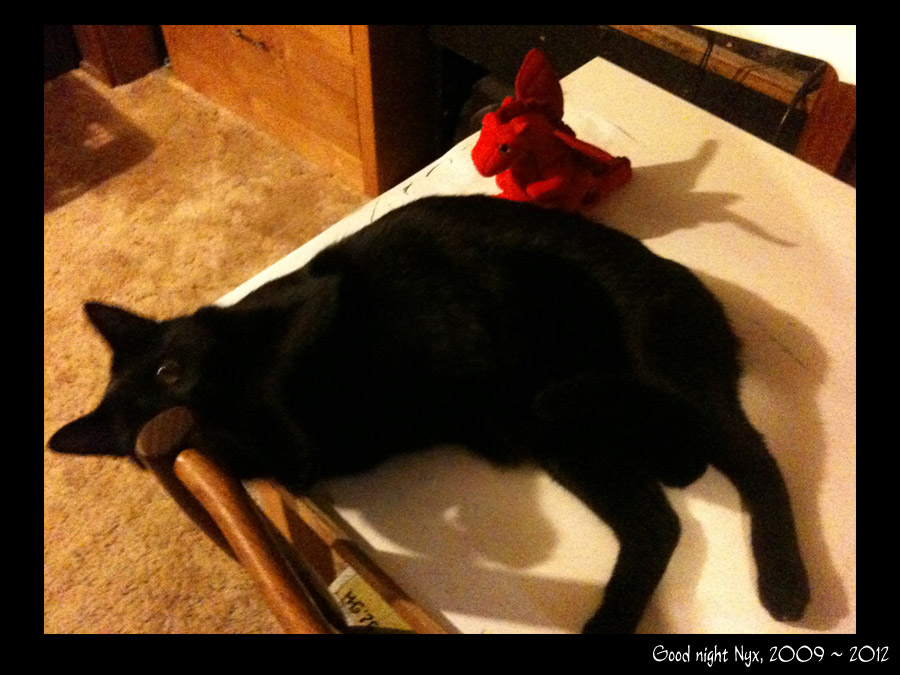
Goldeen Ogawa can be reached for comment at goldeenogawa@gmail.com, or pecked at on Twitter @GrimbyTweets.

